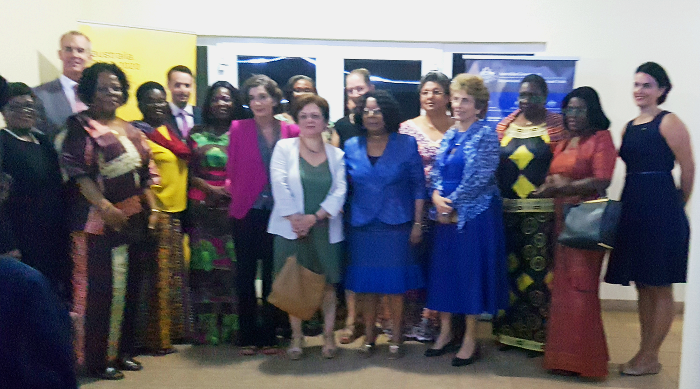A deputy Minister for Gender, Children and Social Intervention, Mrs Della Sowah, has argued that reasons for gender inequalities are cultural and religious.
This, she explained, was why few women are part of the decision-making process in Ghana.
The deputy minister stated this at an event dubbed Celebrating Women in Politics - Paving the way for women at all levels of democratic governance.
Female leadership
The event was hosted by the Australian High Commissioner in Ghana to highlight female leadership, and discuss Australia’s gender equality and women’s empowerment strategy.
Mrs Sowah stated that even though the country’s population ratio was about 51 per cent female to about 48 per cent male, Parliament is dominated by males.
Out of the 275 membership, she said only 30 were females because the attitudes favouring men were very deep.
In spite of this, she said there were women who had defied all odds and were at the helm of decision making in governance.
Domestic violence
She said a research report on Domestic Violence in Ghana which was launched recently by the ministry, indicated that more females said it was ‘’ok’’ for men to beat their wives than males said.
In other words, more men than women said it was wrong to beat wives.
The deputy minister said issues of name calling of women who excelled were very real and cited the case of the EC chairperson, Mrs Charlotte Osei, who is very capable, very qualified and is doing a good job, yet the unprintable words had been used to describe her.
She described the situation as sad and called on people to change their perception about women.
Other speakers
Speaking on the topic: ‘’Lessons from women in political leadership: achievements and challenges, a former Minister of State in the Kufuor administration, Ms Elizabeth Ohene, said women had demonstrated the capacity to overcome terrible events and reorganise themselves better to hold the family than men and were, therefore, capable of holding higher offices.
The Deputy Convenor- Women’s Manifesto Coalition, Mrs Adwoa Bame, who spoke on the topic: “Getting more women into winnable seats: the case for gender consciousness within the political party machinery”, called on political parties to support women to contest and win parliamentary elections.
The Gender and Human Rights Specialist-Office of the Resident Coordinator of the United Nations Development Programme, Ms Bianca Juhl Anderson, stated that effectiveness and visibility of women made them role models.
In his welcome address, the Australian High Commissioner to Ghana, Mr Andrews Barnes, expressed the hope that the number of women parliamentarians would increase during the December 2016 election.

